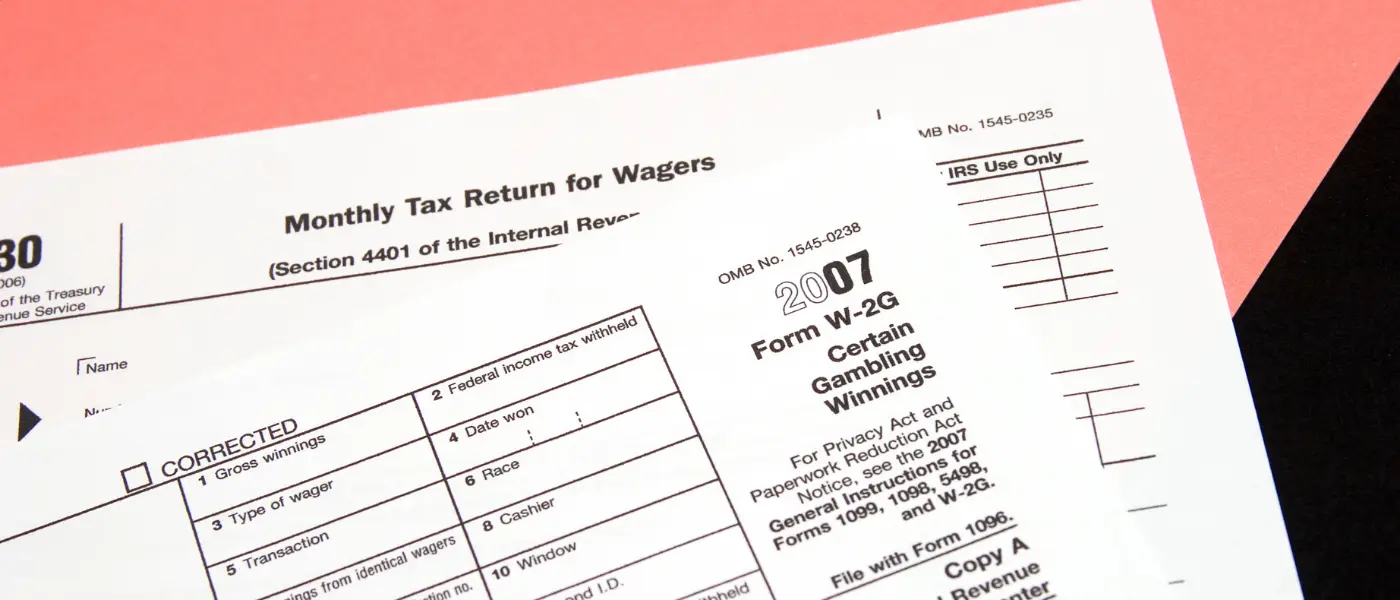Horse Racing Betting Tax Rules On Winnings

A new tax rule adopted by the IRS regarding its treatment of wagering activity continues to have positive impacts on US horse bettors and taxes on horse racing winnings.
In 2017, the IRS adopted a new rule in which all wagers placed into a single parimutuel pool and represented on a single ticket may be aggregated and treated as a single bet for withholding and reporting purposes.
The impact on gamblers was immediate, with TwinSpires and Xpressbet sending out e-mails immediately following the change. Both ADWs cheerfully alerted customers to the news and reported they were happy that customers get to keep more of their own money as a result.
The previous reporting and automatic withholding regulations remain the same under current IRS horse racing betting rules. That is, winnings of 300-1 that pay at least $600 must still be reported to the IRS and winnings of 300-1 that pay at least $5,000 are still subject to automatic withholding horse racing taxes.
However, the manner in which those thresholds are met changes under the new rules. Whereas before the base bet amount (i.e. $2) was considered the original stake, the entire bet amount will now be considered the original stake.
What New Horse Betting Tax Rules Mean for Gamblers
The new horse betting tax rules now count the entire amount of money you bet into a single parimutuel pool as your original wagering amount for tax purposes. Before, the IRS only counted the base bet amount when calculating its 300-1 reporting and withholding thresholds.
This is an important distinction that has resulted in horseplayers keeping more of their money, racebooks seeing an increase in handle, and more financial support for trainers, animals, and purses.
A news piece published on TwinSpires.com best explains how the change affects players:
“Let’s say you box five horses in a $1 superfecta—a bet that costs $120. If you win and the bet returns $5,005 you will not receive a W2G or be subject to automatic withholding because 5,005 is not 300x more than 120. Under the old regulations, you’d have received a W2G and had taxes withheld from your account automatically because $5,005 is more than 300x the $1 superfecta that hit.”
The National Thoroughbred Racing Association (NTRA) provided a second example in their press release:
“For example, the amount wagered by a Pick Six player who hits with one of 140 combinations on a $1-minimum wager now will be $140, which is the total amount bet into the Pick Six pool. This more accurate calculation will remove the significant reporting and withholding obligations on horseplayers and the unnecessary paperwork for the IRS that was a result of the prior rule that used only the $1 bet on the single winning combination as the amount wagered”
TwinSpires President Ted Gay was quite pleased with the news. He called the rules change “a very big win for horseplayers and for pari-mutuel wagering on horse racing.” He also stated that the NTRA has estimated that these changes could increase betting handle on US races by as much as $1 billion per year and “improve the economics of the sport at every level.”
The NTRA had been pushing for these changes for several years on the basis that the old rules were outdated and unfair. As the popularity of exotic wagers grew, more and more winning tickets were meeting the minimum reporting and withholding thresholds for taxes on horse race winnings. Compliance was becoming an increasingly burdensome and costly part of doing business.
The new horse racing tax rules make life a little easier for gamblers and operators alike. Horse racing bettors keep more of their money, and operators deal with fewer winning tickets that meet IRS reporting and withholding thresholds. This is a win for everyone.







